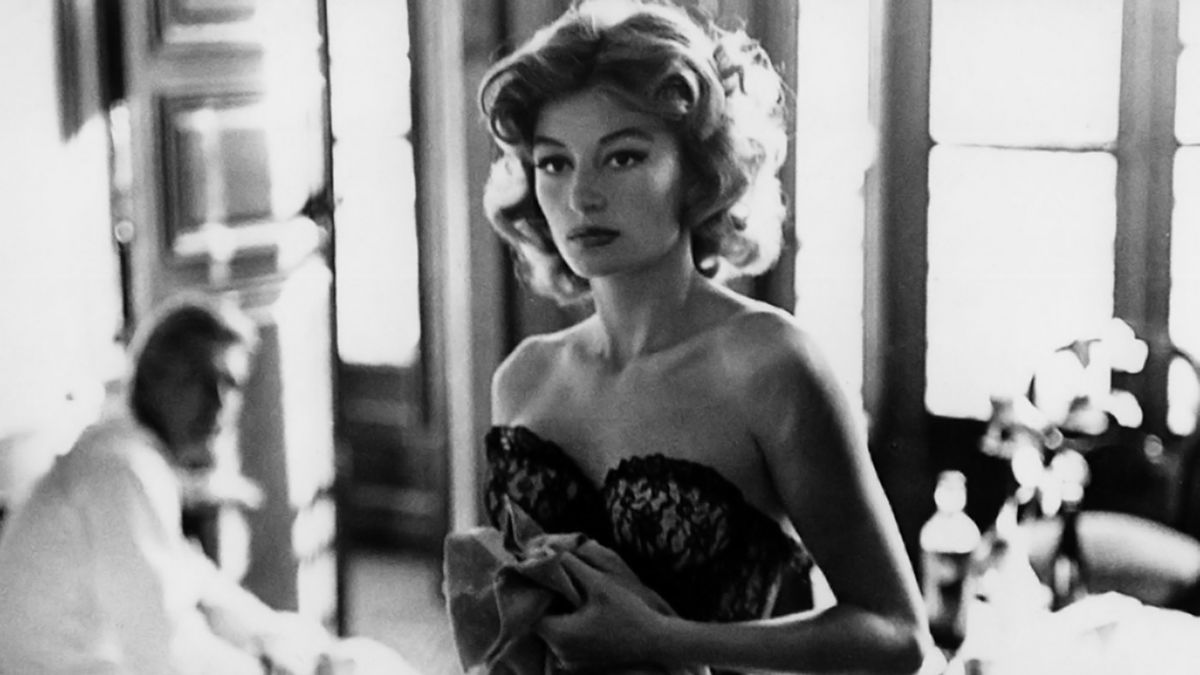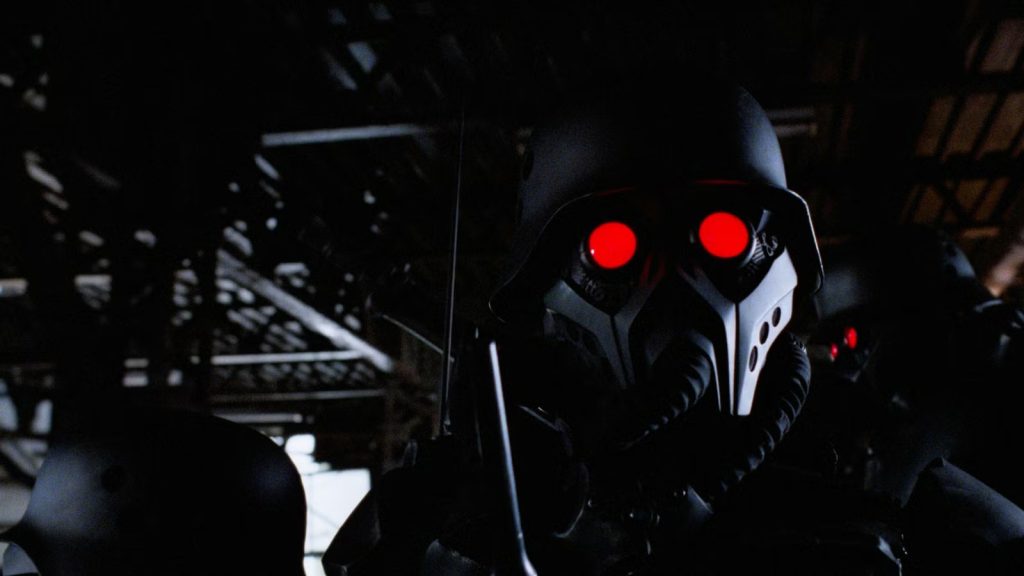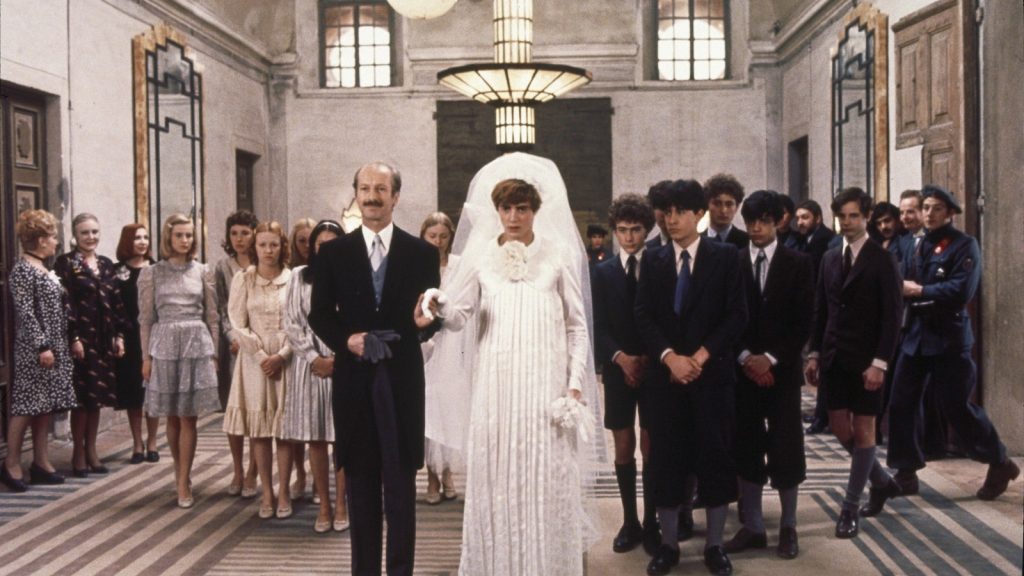Madame Desnoyers has it bad for Roland, the bookish dreamer a few too many years her junior. Her 12-year-old daughter Cecile is secretly smitten with Frankie, an American sailor who will be shipping out soon. Frankie shacks up with Lola sometimes, but it’s nothing serious. Lola’s a cabaret dancer still waiting for the return of Michel, the love of her life who’s been gone so long he doesn’t know he left her with a son who’s now seven years old. As for poor Roland, he never got over Lola, following her like a puppy dog throughout the picture.
Unfulfilled longing runs the circle ‘round in Jacques Demy’s enchanting, heartsick 1961 debut, Lola, a movie in which – like the song goes – everybody needs somebody to love, even when they don’t love you back. To Demy, a poet of heartache whose 1964 musical The Umbrellas of Cherbourg is among the saddest and most beautiful of all films, unrequited love is an essential, inevitable element of the human condition; the most wonderful, horrible part of being alive.
Lola isn’t a musical, but that’s not for lack of trying. Demy initially wanted to tell the story in song, but the budget wouldn’t allow for it, and that limitation lends another dimension of disappointment to a movie about people whose real-life romances never measure up to the Technicolor dreams they see on the silver screen. “In the movies, it’s always beautiful,” a character sighs. But everything in Lola is beautiful, too – just in a slightly different way than what we see when the eminently unemployable Roland, fired again, ducks in to watch a Gary Cooper movie at a matinee.
Lola was shot by the French New Wave’s hero cinematographer Raoul Coutard on location in Demy’s beloved city of Nantes, regarding the slightly seedy playground for sailors and prostitutes with casual enchantment in anamorphic widescreen Franscope. Sandwiched between Jean-Luc Godard’s 1960 Breathless and Agnes Varda’s 1962 Cleo from 5 to 7, Lola has all the hallmarks of the Nouvelle Vague, full of cheeky references and allusions – Jean-Paul Belmondo’s Michel Pocciard from the Godard picture gets name-checked, as does the Marquis de Sade – but curiously was not considered part of the movement’s canon for many years until a spate of documentaries and restorations spearheaded by Varda. (She married Demy the year after Lola was released, staying with him until his death in 1990 from AIDS-related illness.)

It’s easy to see the misfit intellectual Roland as a stand-in for the filmmaker himself, with a lot of the same preoccupations as other young directors of the era. But I don’t think audiences had ever met a character like Lola, the dancehall chanteuse embodied by Anouk Amiee in a performance if not larger than life, than a heck of a lot more memorable. Other movies would have presented her circumstances as tragic, or at least a cautionary tale, but Lola owns her own choices. She’s waiting for her sweet Michel and knows he’ll be back, in the meantime fulfilling her needs via flings with sailors like Frankie but always holding her heart pure. It’s a shockingly sophisticated and sympathetic portrayal, especially given the era.
Marc Michel would reprise the role of Roland in The Umbrellas of Cherbourg, singing about a girl named Lola who once broke his heart. Lola herself reappears in Demy’s 1968 Model Shop, single again, to remind us that all happy endings are fleeting. Filmmakers used to do fun stuff like this before we were saddled with “cinematic universes.” The picture is dedicated to Max Ophuls, whose 1950 La Ronde was an obvious structural inspiration, not to mention Demy cribbing the title from his 1955 Lola Montes. Continuing the hat-tips, the mighty Michel is conspicuously attired like director Jean-Pierre Melville.
Less polished than Demy’s later efforts, there’s something slightly janky about Lola that makes the central preoccupations even more affecting. As everyone’s lives fall short of their romantic fantasies, so the modest, black-and-white movie never quite becomes the musical extravaganza it so clearly wants to be. Even when indulging in the wildest, only-in-the-movies plot twists – including a character striking it rich after being stranded on a desert island – the Hollywood ending is staged in such a way that reminds us that happily ever after doesn’t always include everybody.
“Lola” is streaming on the Criterion Channel.



